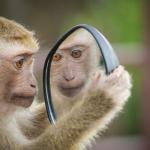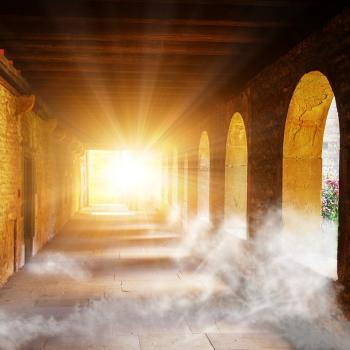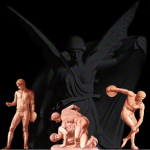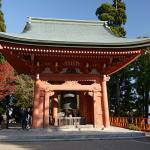Dogen Zenji encourages us to remove the barrier between self and other. So, the beginning of The Way features a quote by Dogen, founder of the Soto school of Zen:
To study the Way is to study the self.
To study the self is to forget the self.
To forget the self is to be enlightened by all things.
To be enlightened by all things is to remove the barrier between self and other.
The Spiritual Journey
Thus, Dogen summarized Zen spirituality. We study the Way, and we see that the egoic self is ephemeral. Then, we see the interdependence and lack of separation in everyone and everything.
As former Zen monk Stephen Batchelor writes, Buddha did not reject the self, per se. “Instead, rather than imagining it as a fixed, non-contingent point around which everything else turned, he recognized that each self was a fluid, contingent process just like everything else.”
Shankara, the Hindu founder of the advaita vedanta school, described the two illusions of separateness. So, “There is the real Self, which is the eternal. But we do not realize our life as that of the real Self. Why do we not realize it? Because of two errors, or illusions, which make up the double heresy of separateness. The first error is the error of our separateness from the Eternal. The second error is the error of our separateness from each other.” (In Zen, the real Self is “no-self.” I wrote about “no-self” here.)
Later, Rupert Spira, a spiritual teacher, recognized this theme in many religions. Thus, he writes, “The essential discovery of all the great spiritual traditions is the identity of Consciousness and Reality, the discovery that the fundamental nature of each one of us is identical with the fundamental nature of the Universe…. ‘Atman equals Brahman,’ ‘I and my Father are one,’ ‘Nirvana equals Samsara,’ ‘Emptiness is Form,’ ‘I am That,’ ‘Consciousness is All,’ ‘There are not two things,’ ‘Sat Chit Ananda.’”
Interdependence
So, many interpretations of Buddhism and Hinduism are non-dual. They see no separation between Ultimate Reality and ourselves or between ourselves and others. Hinduism is non-dual, where there is no separation in Brahman or fullness. Also, Buddhism is non-dual, where there is no separation in the Void or emptiness.
In The Way, I suggest that emptiness and fullness are two ways of viewing the same Ultimate Reality. Imagine that we have a “God’s-eye view” of everything in the Universe. So, there is fullness. Everything is happening, all of the creation and destruction, light and sound and matter. But, from a God’s eye view, there is emptiness. Everything is nothing, darkness and silence and space.
In fact, dependent origination or interdependence is a key concept in Buddhism. Dependent origination suggests that everything is dependent on other things and that nothing is independent. Lately, the new physics is confirming that the physical universe is interdependent.

The New Physics
Barbara Brown Taylor, an Episcopal priest, describes God in terms of the new physics: “God is all over the place. God is up there, down here, inside my skin and out. God is the web, the energy, the space, the light—not captured in them, as if those concepts were more real than what unites them—but revealed in that singular, vast net of relationships that animates everything that is.”
Biology derives from chemistry. Chemistry derives from physics. Physics derives from mathematics. Photos of the Earth from space remind us that we share this planet. Issues like climate change, global pandemics and nuclear wars reveal our interconnectedness.
In the old Newtonian physics, people and things are discrete objects, interacting like billiard balls. Thus, systems are atomistic or reductionist; the whole is the sum of the parts; consistent with the Western worldview. We can see this in our focus on individuality and personhood, including personal gain, personal responsibility, and personal salvation.
In the new quantum physics, people and things are linked in an interconnected field, a oneness. Thus, systems are holistic or relational; the whole is in the parts and the parts are in the whole; consistent with the Eastern worldview. In fact, Robert Oppenheimer and other modern physicists studied Eastern philosophy.
So, the Eastern religions in their subjective experience and the quantum physicists in their objective evidence both see the interdependence of the universe.
Dogen Zenji encourages us to remove the barrier between self and other. Over 800 years ago, Dogen saw what the quantum physicists see today.
If you want to stay up to date on the latest from You Might Be Right, simply subscribe with your email.
The Way is a Silver winner in the 2024 Nautilus Book Awards in the Religion/Spirituality of Other Traditions category.














